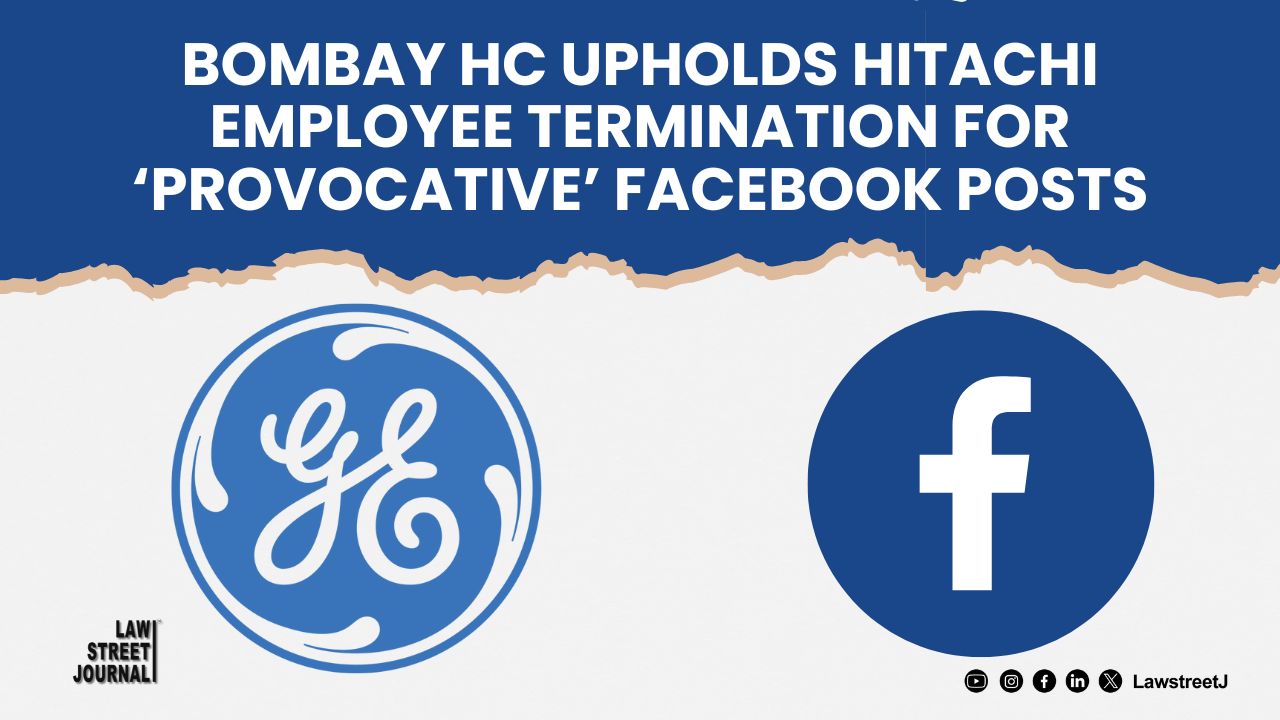MUMBAI: A Labour Court ruling that had overturned an employees termination for two "provocative" Facebook posts against the employer company has been overturned by the Bombay High Court.
Freedom of speech and expression cannot be allowed to be transgressed beyond reasonableness. If that is allowed, it could lead to disastrous consequences. In a given case, one cannot and should not wait for the consequences to occur. Such acts itself are required to be nipped in the bud. Otherwise, it would convey a wrong signal to the society at large, Justice Milind N Jadhav observed.
The Court was hearing a plea by Hitachi Astemo Fie Pvt. Ltd, which challenged an order by the Labour Court, Pune, that had quashed and set aside the termination of Nirajkumar Prabhakarrao Kadu. He was an office-bearer of a recognised union of the company.
Two posts that Kadu made on his Facebook account during the salary settlement dispute were deemed by the company to be derogatory and meant to damage its reputation.
In April, 2018, an Enquiry Officer of the company held Kadu guilty of misconduct and his services were terminated through dismissal order. Challenging this, Kadu approached the Labour Court.
The Labour Court said that though misconduct was committed by the Respondent workman, but since it has had no adverse effect, the argument that the response to the two Facebook posts was "likely to be violent" can't be accepted. The Court then quashed the termination order.
The Court however did not agree with this finding.
Though it was vehemently argued that no untoward incident had taken place, merely because no incident has taken place, it cannot be a ground for discharging the act of posting the defamatory and provocative posts made by the Respondent workman, the Court held.
In fact, a clear nexus is made out between the two Facebook posts posted by the Respondent workman and the misconduct levelled against him. It is seen that, the two posts were in fact directed against the Petitioner - Company with a clear intent to incite hatred and were provocative. This clearly stands proven," it added.
The Court further noted that posting such posts on the Facebook account and the comments received are clearly an act of inciting hated and passion against the management. The Respondent workman initially refused to accept that he had posted the two Facebook posts. However, in the evidence that was produced before the Labour Court, the Respondent workman failed to produce evidence supporting his argument.
on the basis of the two Facebook posts posted by Respondent workman, hatred and passion was clearly incited clearly amongst those who have given the likes and comments and one such comment incited the passion to such an extent that it stated that, atleast 2-3 persons from the management should be assaulted with swords, the bench noted.
Prima facie, the Court noted that a serious comment of taking resort to weapons and assaulting the management personnel was commented upon in reply to the first Facebook post.
Language used by the Respondent workman in the two Facebook posts clearly amounts to commission of an act which is subversive of discipline or good behaviour on the premises of the establishment when the aforementioned clauses of the Model Standing Order are broadly interpreted, the Court wrote.
Before closing, the High Court added that a much greater degree of restraint was expected from the office-bearers of the union who held active parleys with the company for wage settlement issues. However, if such restraint is not practiced, such acts cannot / should not be pardoned, the Court said.
On these grounds, the Court held the Labour Court's verdict as unsustainable.
As a consequence it is held that, the enquiry conducted against Respondent - workman was absolutely fair and proper and the findings returned by the Enquiry Officer are upheld as being proper. The Writ Petition succeeds," the Court concluded.



![Husband Can Also Claim Alimony/Maintenance From Wife: Bombay High Court Orders Woman To Pay Alimony To Ex-Husband [Read Order]](/secure/uploads/2022/04/lj_2823_Divorce.jpg)








